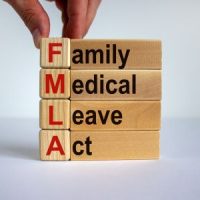Understanding Differences Between Federal and California Medical Leave Acts

Under the federal Family Medical Leave Act (FMLA), if you have a qualifying medical condition, or a family member has such a condition, you can get time off from work to take care of yourself, or your family member. The time off is generally unpaid, and there are differences between the Federal law, and California’s version, the California Family Rights Act.
Who is Covered?
The first difference between the Federal and California law is application.
California’s law covers way more employers than the federal law does. Under federal law, for you to be provided unpaid leave under the FMLA, your employer must have 50 workers, and you must have worked at your job for at least 12 months prior to requesting the leave. In those 12 months, you must have worked 1,250 hours.
California’s Family Rights Act only requires that an employer employ 5 employees, and only requires that you have worked at the company for 20 weeks prior to requesting your leave.
You are covered by California’s act, even if you work remotely. Like the FMLA, California law provides workers up to 12 weeks of unpaid leave. These twelve weeks “start over,” or renew, every year, so if you use some this year, you start fresh with a new right to the 12 weeks, as long as you remain eligible.
Paid or Unpaid?
Although the leave under both Federal and California law is unpaid, you do have a right to keep your health insurance at the same cost, and you do have a right to opt to use any accrued sick or personal time which may be paid.
What is Covered?
The entire point of both laws is to protect your job, so it’s there when you get back from caring for yourself or a sick loved one.
There is no one comprehensive list of things that make you eligible for leave under California or Federal law, but some examples include:
- Pregnancy, including difficulties surrounding pregnancy, and time post-birth, to care for and bond with a newborn
- Any serious health condition, which the law defines as a condition that requires in home care, or care in a hospital or medical facility
- Deployment for military leave—including a family member’s wish to spend time with other family members about to go on, or on leave from, military leave.
There are some differences between the laws; for example, the federal law does not allow time off to care for a sick grandparent, whereas California’s law does). However, if there is a situation that both laws do cover or protect, you cannot stack or add the 12 weeks to get 24 weeks.
State Paid Leave
Note that California does have a paid leave program, which is more limited than the Family Rights Act, but which does provide about 60-70% of a worker’s normal wages. You need to file a claim with the government and of course, there is a waiting period while the government processes your request.
Is your employer giving you difficulty because you need time to take care of yourself or a loved one? Call the San Jose employment lawyers at the Costanzo Law Firm for help today.
Source:
ca.db101.org/ca/situations/workandbenefits/rights/program2b.htm
